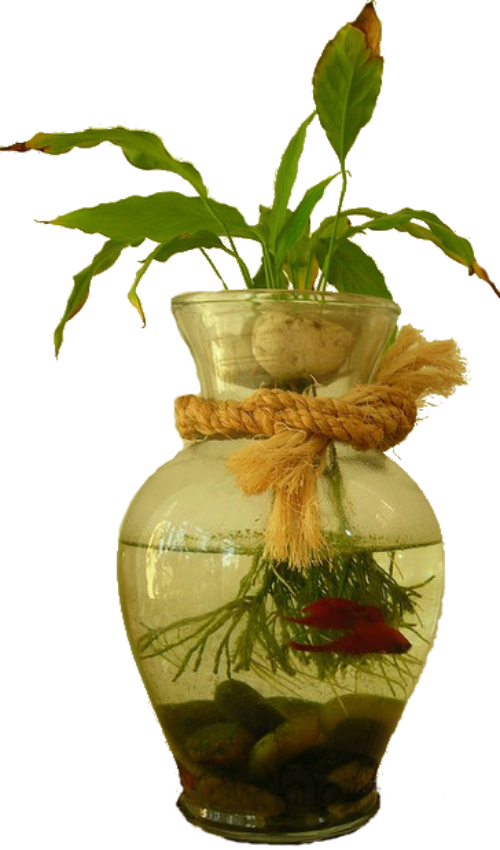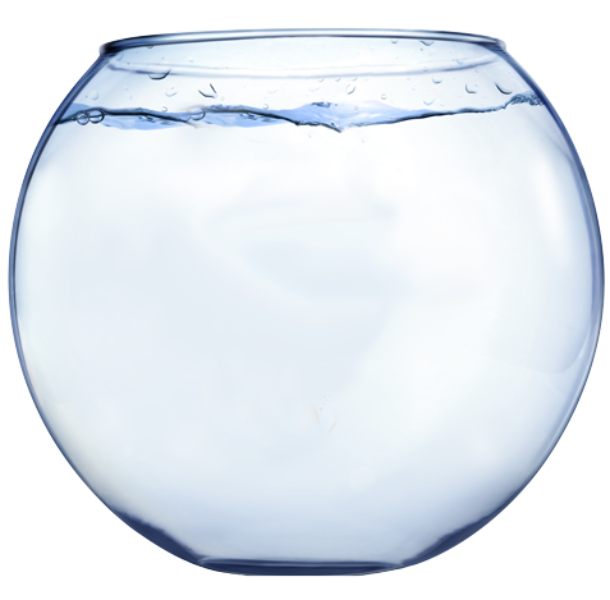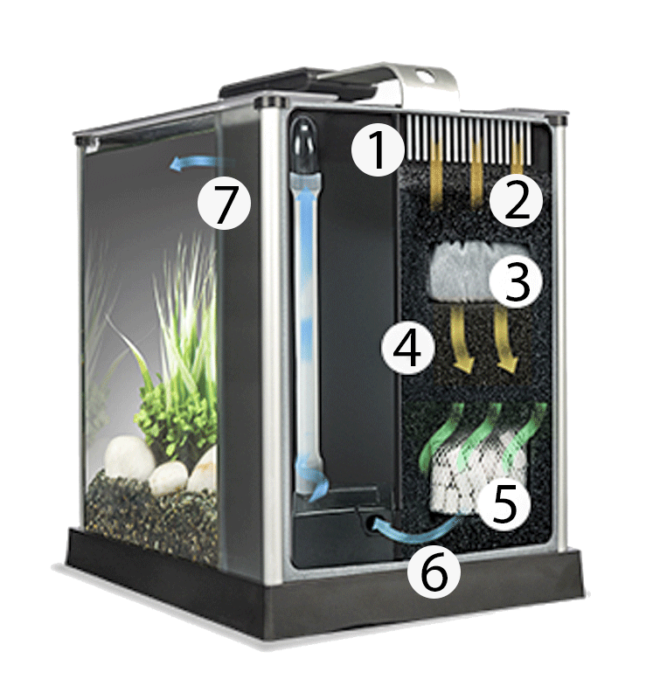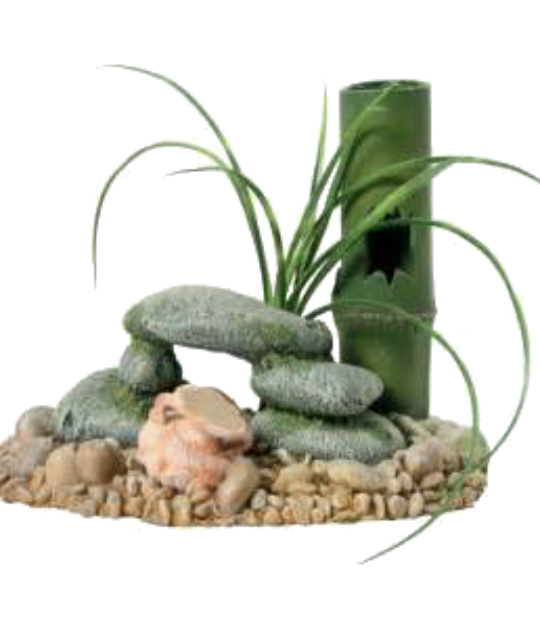Betta Tank
Many people claim that a betta will thrive in a vase set on the desk among the roots of a plant, feeding on the roots and having the plant use all its waste. They say he doesn’t need any additional heat, filtration, feeding, or water changes, to put it delicately, that is NOT TRUE!!! He will not eat plant roots and HE does need water changes, and probably heating too.
Because a Betta will not suffocate in bowl of water so small that it can barely turn around does not mean that setup is sufficient. Bettas are not very active fish, in the wild the male defends a small territory around its nest, they do not hunt for food they are an ambush predator, in addition the male of a fancy strains have extremely long fins that make rapid swimming impossible, they do, however, need some room to exercise.
Next step.
A bowl large enough for the fish to swim several body lengths in every direction is adequate, just about 6 inches, also, Bettas are unable to get sufficient oxygen from their gills, so they must have access to air.
Another thing to consider is the location of the tank, just like any other aquarium the betta tank should Not receive direct sunlight, to avoid algae overgrowth and the sun turning your tank into a pressure cocker also avoid locations near outside doors or windows so that the draft won’t chill the water all of a sudden.

Filter
Aeration is not important, but filtration is, it is very rare to see a betta in an unfiltered tank that does not suffer from ammonia burns on its fins. The most crucial aspect of filtration is biofiltration, when bacterial biofilter is not available frequent water changes are the only way to keep ammonia in check. Remember clean water is the key to a happy and healthy betta. Deteriorating water conditions will often diminish a betta’s appetite, a water change will quickly restore it.
Lighting
Regular room light is fine for your fish, so if you are ok with it you do not need any supplemental light for your tank unless you have live plants, if that is the case you are going to need whatever light is appropriate for that plant. Bettas prefer dim lights, but if you want him to shine in all his splendor by adding a bit more light, as a good sport as he is, he won’t mind.
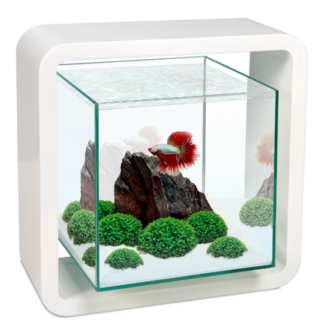
Heat
Bettas need warmth, they are tropical fish after all.
The ideal temperature for your betta ranges between 76F and 84F (25C- 29C) best would be 80F (27C). Much of the lethargy observed in jarred bettas can be attributed to low temperatures. Now a day, retailers have low wattage heaters that will fit your tank and reduce the risk of raising the temperature to fast.
Water change
Water changes should be accomplished according to the volume and filtration system of your tank. If you want to change the water just once a week you should give your betta at least 1 gallon (3.7 liters) of water volume. A betta kept in a bowl that contain 1 cup of water (250ml) much like the ones they are commonly sold in, will need a complete water change at least once a day.
When changing your betta’s water, use water of the same temperature and de-chlorinated. This prevents shocking or poisoning your fish. Bettas in need of a water change loose interest in nest building.
Have 2 sets of jars, instead of changing the water have jar #2 ready with conditioned water at the right temperature and switch the fish to the clean jar, then clean jar # 1 and set it aside for the next time your betta needs a watery change.
Substrate
Use whichever substrates you like best as your betta won’t mind either way, as long as you make sure the substrate is completely cleaned with each water change won’t matter if you use, gravel, sand, rock etc. Some hobbiests like to keep a bare bottom tank with no gravel at all, claming that it is way easier to keep clean, so if you don’t like any substrate sold at your local store, bare bottom could be an option.

Decorations
People decore thair betta tanks in every which way immaginable, so, when decorations are added there is only one thing to keep in mind, make sure the tank is large enough for the fish to move around, and take care that objects, plastic plants, etc. do not have sharp or pointy edges, which could injure your betta.
Plants
Plants will take up some fish waste and provide shelter for your betta when he is feeling shy, so they are a good addition, but make sure to choose your plants accordingly with the amount of light you will use in the tank, otherwise they will just wither and die. The biofiltration capabilities of the bacteria inhabiting the leafs and roots is usually negligible in a big aquarium, but in a small tank their bio-filtration capabilities can be significant.

